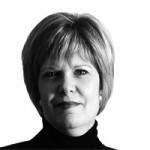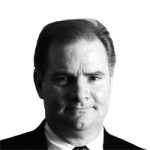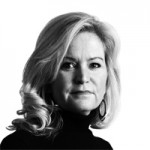Written by Kellye Carter Crocker
Photos by Duane Tinkey
Can one person truly make a difference? Imagine Des Moines today without the contributions of these people, who moved to the metro area—or boomeranged back home—in the past decade.
Shannon Cofield
 As president of United Way of Central Iowa from 2004 to 2011, Shannon Cofield focused on coordinating services in three specific areas—education, income and health—establishing community goals in those areas, implementing evidence-based strategies for reaching the goals and creating a technology-based system for measuring performance. “Under Shannon’s leadership, United Way of Central Iowa was recognized as a national leader for its implementation of this new approach,” says Steven Zumbach, a Des Moines attorney and former United Way campaign chairman. At the same time, revenues grew from $17.2 million to $25.5 million. But Cofield, who moved to Des Moines from Atlanta, isn’t just a proven fundraiser, Zumbach says. She’s also an efficient fundraiser, a difficult combination to achieve. “Shannon—with her management skills, strategic thinking and execution—is the complete package,” he says.
As president of United Way of Central Iowa from 2004 to 2011, Shannon Cofield focused on coordinating services in three specific areas—education, income and health—establishing community goals in those areas, implementing evidence-based strategies for reaching the goals and creating a technology-based system for measuring performance. “Under Shannon’s leadership, United Way of Central Iowa was recognized as a national leader for its implementation of this new approach,” says Steven Zumbach, a Des Moines attorney and former United Way campaign chairman. At the same time, revenues grew from $17.2 million to $25.5 million. But Cofield, who moved to Des Moines from Atlanta, isn’t just a proven fundraiser, Zumbach says. She’s also an efficient fundraiser, a difficult combination to achieve. “Shannon—with her management skills, strategic thinking and execution—is the complete package,” he says.
In receiving the 2011 Business Record Woman of Influence award, Cofield spoke publicly about her difficult childhood, which included the death of her father when she was 10. Being raised by a loving grandmother who emphasized the importance of making good life choices ignited Cofield’s lifelong passion to make a difference in people’s lives, Zumbach says. Cofield now works as senior counsel to the president for strategic partnerships at Drake University.
Mary Cownie
 Iowa Director of Cultural Affairs Mary Cownie is Gov. Terry Branstad’s youngest department head, but, he says, “she’s got knowledge and experience well beyond her years.” Cownie worked with national and local media as an “advance person” for the Bush-Cheney campaign in 2004, then in the George W. Bush White House from 2005 to 2007. The Roosevelt High School graduate, who is married to state Rep. Peter Cownie, returned home after that and served as communications director for the Republican Party of Iowa and Prairie Meadows Racetrack and Casino. Just a year after Cownie established her own public relations firm, Branstad chose her to lead the Cultural Affairs Department.
Iowa Director of Cultural Affairs Mary Cownie is Gov. Terry Branstad’s youngest department head, but, he says, “she’s got knowledge and experience well beyond her years.” Cownie worked with national and local media as an “advance person” for the Bush-Cheney campaign in 2004, then in the George W. Bush White House from 2005 to 2007. The Roosevelt High School graduate, who is married to state Rep. Peter Cownie, returned home after that and served as communications director for the Republican Party of Iowa and Prairie Meadows Racetrack and Casino. Just a year after Cownie established her own public relations firm, Branstad chose her to lead the Cultural Affairs Department.
Cownie came into the job facing a significant challenge—the state’s tight budget, Branstad says. A December gala she organized raised more than $150,000 for the State Historical Building and the State Historical Museum of Iowa. “The event exceeded expectations in both the (number) of people who participated and in the (amount) of money it raised,” Branstad says. “She’s been able to attract a lot of young people and get them interested in the arts, history and cultural affairs. I’ve been really delighted with the job she’s done.”
Mike Draper
 Mike Draper’s silkscreened T-shirts highlight life in Des Moines and the rest of “flyover country” with a knowing wink. Now, a book from Draper and his staff at Raygun LLC, his East Village clothing and accessories store, offers “an illustrated guide to the history and culture of the galaxy’s most important region.” Its modest title: “The Midwest: God’s Gift to Planet Earth.” His T-shirts boast similar place pride (“Des Moines: Hell, yes”). But, just as the book is dedicated to, among others, “high fructose corn syrup and clinging to guns and religion,” Draper isn’t afraid to take an irreverent swipe at the problems he sees (“Don’t Meth with Iowa,” “I went to the Iowa State Fair and all I got was Type 2 diabetes”). He also blogs, pens letters to the editor and speaks out about local, state and national affairs. In 2009 he testified before Congress on health-care reform. The Van Meter native opened Raygun (then called Smash) in 2005 after earning an Ivy League degree and kicking around the East Coast selling T-shirts on the street.
Mike Draper’s silkscreened T-shirts highlight life in Des Moines and the rest of “flyover country” with a knowing wink. Now, a book from Draper and his staff at Raygun LLC, his East Village clothing and accessories store, offers “an illustrated guide to the history and culture of the galaxy’s most important region.” Its modest title: “The Midwest: God’s Gift to Planet Earth.” His T-shirts boast similar place pride (“Des Moines: Hell, yes”). But, just as the book is dedicated to, among others, “high fructose corn syrup and clinging to guns and religion,” Draper isn’t afraid to take an irreverent swipe at the problems he sees (“Don’t Meth with Iowa,” “I went to the Iowa State Fair and all I got was Type 2 diabetes”). He also blogs, pens letters to the editor and speaks out about local, state and national affairs. In 2009 he testified before Congress on health-care reform. The Van Meter native opened Raygun (then called Smash) in 2005 after earning an Ivy League degree and kicking around the East Coast selling T-shirts on the street.
“Mike has become the lead Midwest hipster voice of the anti-brain-drain crowd in Iowa and, increasingly, the Midwest,” says Kyle Munson, The Des Moines Register’s Iowa columnist. “He has managed to turn his humble T-shirt company into a creative cultural platform.”
Angela Walker Franklin
 In less than two years as president of Des Moines University (DMU), Dr. Angela Walker Franklin has revised the medical school’s mission and vision statements, reorganized several administrative units and restructured the university clinic. “She’s very driven and very laser-focused on making DMU the best institution going,” says Eric Crowell, president and CEO of Iowa Health—Des Moines and a DMU board member. Franklin’s clinical psychology background has proven useful in dealing with the politics of change, he adds.
In less than two years as president of Des Moines University (DMU), Dr. Angela Walker Franklin has revised the medical school’s mission and vision statements, reorganized several administrative units and restructured the university clinic. “She’s very driven and very laser-focused on making DMU the best institution going,” says Eric Crowell, president and CEO of Iowa Health—Des Moines and a DMU board member. Franklin’s clinical psychology background has proven useful in dealing with the politics of change, he adds.
A native of South Carolina, Franklin told DMU Magazine that she initially hesitated to leave Meharry Medical College in Nashville, where she was executive vice president and provost. But she was won over by DMU’s emphasis on primary care, wellness and osteopathic medicine. One of Franklin’s goals is increasing hands-on experiences for students. Last summer she moved La Clinica de la Esperanza from Des Moines’ East Side to the campus, expanding health services for the Latino population and allowing students more training opportunities. “I’ve watched her organize a multistate community—it’s called the DMU Collaboration—where she’s really created a lot of partnerships to help students get more clinical experience,” Crowell says. “That’s something I haven’t seen before. I think she’s spot-on target with that one.”
Rick Green
 The digital revolution and financial pressures—including more choices for advertisers, the recession and the clarion call for corporate profits—have shuttered many newspapers. The Des Moines Register remains Iowa’s largest, and Rick Green, vice president and editor since 2011, strives to continue its tradition of excellence while employing a new business model. Last summer, the Register, like The New York Times and other papers, began a metered approach to online content, granting nonsubscribers free access to a limited number of articles per month.
The digital revolution and financial pressures—including more choices for advertisers, the recession and the clarion call for corporate profits—have shuttered many newspapers. The Des Moines Register remains Iowa’s largest, and Rick Green, vice president and editor since 2011, strives to continue its tradition of excellence while employing a new business model. Last summer, the Register, like The New York Times and other papers, began a metered approach to online content, granting nonsubscribers free access to a limited number of articles per month.
“Rick seemed to be just what the Register needed when he took over the newsroom,” says Marc Hansen, who spent 33 years at the Register as a sports writer and columnist. “He’s a good newsman and a gregarious, upbeat person who tries to do the right thing. I enjoyed working with him. But . . . the industry continued to spin its wheels trying to come up with a way to make money on the digital product. And corporate kept trying to cut its way out of the problem.” Layoffs and furloughs followed, and then, last spring, 13 veteran staffers, including Hansen, took early-retirement buyouts. Now Green’s smaller staff is asked to tackle more.
Still, Green is determined to make the Register stronger than it ever has been no matter what the delivery platform. “It’s easy to be a leader when you are living in the days of high cotton … when the resources are great and no one is asking you to do more and more with less and less,” he told dsm last year. “To me, true leadership really emerges when the great challenges are in front of you.”
Fred and Charlotte Hubbell
 After living in the Netherlands and New York City, a craving for community and the chance to make a difference drew the Hubbells—Fred, a retired executive at Dutch financial services giant ING Groep NV, and Charlotte, an independent writer-editor—back to Des Moines in 2007. The Hubbells are always willing to pitch in on community projects, giving their time as well as money, says business leader Jim Cownie, a longtime friend.
After living in the Netherlands and New York City, a craving for community and the chance to make a difference drew the Hubbells—Fred, a retired executive at Dutch financial services giant ING Groep NV, and Charlotte, an independent writer-editor—back to Des Moines in 2007. The Hubbells are always willing to pitch in on community projects, giving their time as well as money, says business leader Jim Cownie, a longtime friend.
The Hubbells’ philanthropic passions include the environment, health and human services, and the arts. Through the Fred and Charlotte Hubbell Foundation, they’ve supported an array of organizations, including United Way of Central Iowa, the Des Moines Social Club, the Iowa Environmental Council, which Charlotte Hubbell co-founded, and Simpson College, where Fred Hubbell serves as chairman of the board of trustees. With a $2 million pledge in initial and deferred gifts last year, they joined the Community Foundation of Greater Des Moines’ elite Leadership Circle. “They are generous, generous people,” Cownie says. “They give a lot of money away that is their money, not corporate money. We would not be the city we are without Charlotte and Fred Hubbell.”
Stephanie Jutila
 “Ten years from now, if we accomplish what we want to accomplish, it will be because of Stephanie’s leadership,” says Fred Weitz, a vice president of the Greater Des Moines Botanical Garden board and a longtime community leader who ran The Weitz Co. until retiring in 1995. The lofty, $11.6 million goal: to expand, renovate and reposition the Greater Des Moines Botanical Garden into one of the area’s major amenities.
“Ten years from now, if we accomplish what we want to accomplish, it will be because of Stephanie’s leadership,” says Fred Weitz, a vice president of the Greater Des Moines Botanical Garden board and a longtime community leader who ran The Weitz Co. until retiring in 1995. The lofty, $11.6 million goal: to expand, renovate and reposition the Greater Des Moines Botanical Garden into one of the area’s major amenities.
To that end, Jutila came on as the organization’s first CEO and president in late 2011. She stood out in a nationwide search, in part, because of her degrees in horticulture and experience working for the American Horticulture Society in Virginia, which allowed her to visit public gardens around the world, Weitz says. “It was very clear that she really wanted the job,” he says. “She did a lot of research on Des Moines and what was going on here in a way none of the other candidates did.”
Jutila also is a skilled public speaker and fundraiser, he adds. She lost experienced workers when they chose to remain with Des Moines Water Works when it relinquished control of the facility on Jan. 1, he says, but “on the other hand, it gives Stephanie a chance to chart her own course. She’s been doing a really good, professional job of recruiting, interviewing and selecting (employees). I think she’s doing a swell job.”
Zachary Mannheimer
 Zachary Mannheimer rolled into town from Brooklyn, N.Y., in 2007 with a chip on his shoulder, says Suku Radia, Bankers Trust Co. president and CEO. Des Moines was one of 22 cities Mannheimer eyed as a home for his project—a nonprofit arts organization that would serve all ages, support local artists, and inspire social change, innovation and entrepreneurialism. This place is depressing, Mannheimer blogged about Des Moines in 2007. Very, very depressing. Yet, he was charmed by the response he got to his idea: Des Moines residents were excited.
Zachary Mannheimer rolled into town from Brooklyn, N.Y., in 2007 with a chip on his shoulder, says Suku Radia, Bankers Trust Co. president and CEO. Des Moines was one of 22 cities Mannheimer eyed as a home for his project—a nonprofit arts organization that would serve all ages, support local artists, and inspire social change, innovation and entrepreneurialism. This place is depressing, Mannheimer blogged about Des Moines in 2007. Very, very depressing. Yet, he was charmed by the response he got to his idea: Des Moines residents were excited.
During the past five years, Mannheimer’s Des Moines Social Club has offered classes for all ages, exhibits, plays, a jazz lunch series, a New Year’s party the past four years and many other events. In 2012, it moved forward with plans to renovate a downtown firehouse into the club’s permanent home, raising more than $2 million in pledged gifts to date. “Not only has he become one of us, but he has made a significant contribution to the cultural vibrancy of our community,” Radia says. “He had a vision, and he had a solid plan of execution. He became humble, he listened and he networked. In my mind, he has made a difference like none other of his generation. ”
Ben Milne
 Whether it’s CNNMoney, The New York Times or Inc.com reporting on the high-tech startup boom in the new “Silicon Prairie,” Dwolla Inc. founder Ben Milne is their poster boy. And, when The Huffington Post named six great tech companies to watch in 2013, Dwolla popped up again. With Dwolla—the name is a mashup of “dollar” and “web”—Milne created a low-cost, no-hassle way to transfer money via Twitter, Facebook, LinkedIn and email. Transactions of $10 or less are free. After that, it’s a flat 25 cents. In a profile last summer, Inc.com said Milne isn’t just taking on PayPal; he’s “disrupting the whole world of banking.”
Whether it’s CNNMoney, The New York Times or Inc.com reporting on the high-tech startup boom in the new “Silicon Prairie,” Dwolla Inc. founder Ben Milne is their poster boy. And, when The Huffington Post named six great tech companies to watch in 2013, Dwolla popped up again. With Dwolla—the name is a mashup of “dollar” and “web”—Milne created a low-cost, no-hassle way to transfer money via Twitter, Facebook, LinkedIn and email. Transactions of $10 or less are free. After that, it’s a flat 25 cents. In a profile last summer, Inc.com said Milne isn’t just taking on PayPal; he’s “disrupting the whole world of banking.”
Christian Renaud, principal and mentor at StartupCity Des Moines, has been friends with Milne, a Waterloo native and University of Northern Iowa dropout, since Milne arrived in Des Moines in 2010. He says Milne is “doggedly persistent” and has the ability to gather information from a variety of sources and then form his own opinions. “His decision to locate Dwolla in Des Moines has been a boon to local entrepreneurs,” Renaud says, “and he has proven to be a role model for many aspiring technologists to form their own companies.”
Mary Sellers
 Clearly, Mary Sellers had done her homework before interviewing for the president’s position at United Way of Central Iowa. “I’m smiling inside thinking, ‘You have got to be kidding. She’s asking us about things that would take a while on the job to understand,’ ” says Steve Chapman, chairman of United Way’s board of directors. Sellers also was passionate about Des Moines and was a proven leader. As president and CEO of the Science Center of Iowa for 10 years, Sellers led the efforts that resulted in the landmark $62 million facility downtown. She and her husband left Des Moines to care for their aging parents in Florida, returning last spring when Sellers started her new job.
Clearly, Mary Sellers had done her homework before interviewing for the president’s position at United Way of Central Iowa. “I’m smiling inside thinking, ‘You have got to be kidding. She’s asking us about things that would take a while on the job to understand,’ ” says Steve Chapman, chairman of United Way’s board of directors. Sellers also was passionate about Des Moines and was a proven leader. As president and CEO of the Science Center of Iowa for 10 years, Sellers led the efforts that resulted in the landmark $62 million facility downtown. She and her husband left Des Moines to care for their aging parents in Florida, returning last spring when Sellers started her new job.
Less than six months later, she proposed restructuring the organization, says Chapman, CEO and president of Ruan Transportation Management Systems Inc. “We had changed the focus, but we hadn’t changed the internal structure,” he says. “Everyone has been very supportive of what she put together, and they’re already feeling great satisfaction in their job roles.” Sellers won’t be satisfied with the status quo, Chapman adds: “You will see that organization continue to evolve around the needs of the community. We’re lucky to have her back.”
Tom Urban
 As Des Moines’ young mayor during the social unrest of the late 1960s, Tom Urban worked with the Black Panthers and other groups to foster understanding and bring peace to the community, says Des Moines lawyer Dwight James, who has been friends with Urban for 75 years—since they were 3. After retiring from Pioneer Hi-Bred International Inc., where he was chairman, president and CEO, Urban taught at Harvard Business School and also lived in Florida. Urban, who returned to Des Moines three years ago, is a leader in the Greater Des Moines Botanical Garden project and serves on the board of the Community Foundation of Greater Des Moines.
As Des Moines’ young mayor during the social unrest of the late 1960s, Tom Urban worked with the Black Panthers and other groups to foster understanding and bring peace to the community, says Des Moines lawyer Dwight James, who has been friends with Urban for 75 years—since they were 3. After retiring from Pioneer Hi-Bred International Inc., where he was chairman, president and CEO, Urban taught at Harvard Business School and also lived in Florida. Urban, who returned to Des Moines three years ago, is a leader in the Greater Des Moines Botanical Garden project and serves on the board of the Community Foundation of Greater Des Moines.
As he did more than 40 years ago, Urban also is working to solve some of the toughest problems facing the central city. As co-chair of the Capital Crossroads Urban Core Initiative, “he has tirelessly met with all interested groups and individuals to learn the problems and suggested solutions,” James says. “Besides the talent of working well with people of all backgrounds, he has the capacity to look at varying opinions, options and complex sets of facts and sift through them to a solution. With his leadership, in the next 10 years, the urban core of Des Moines will transform into a productive, upward-moving segment of our city. He has the leadership skill to guide us to a higher level as a city.”







